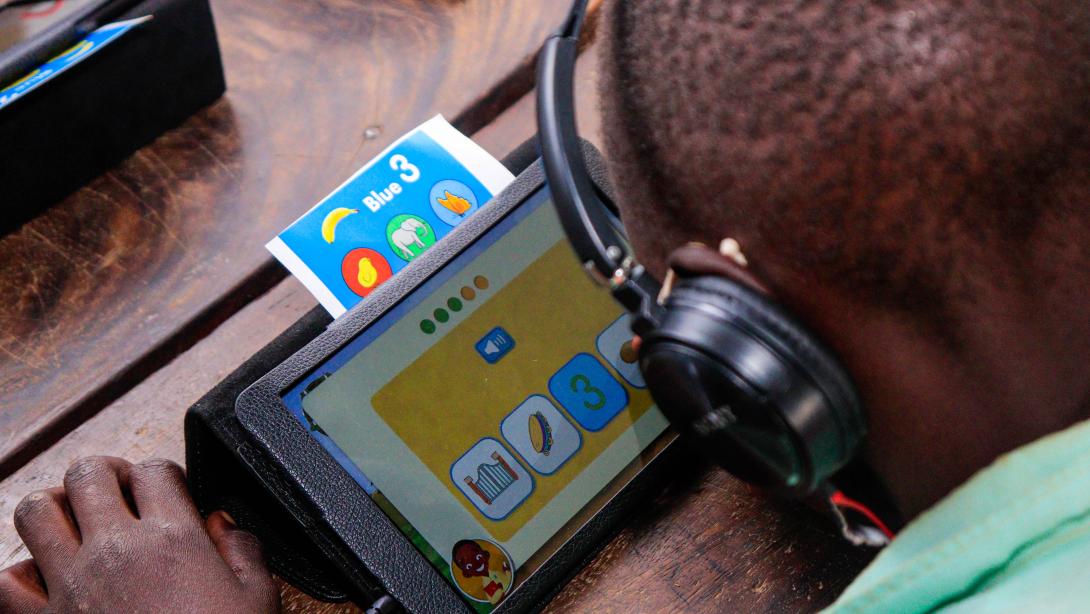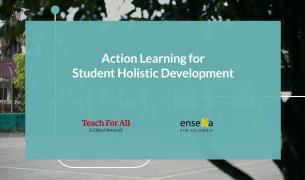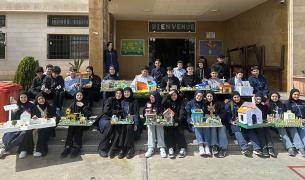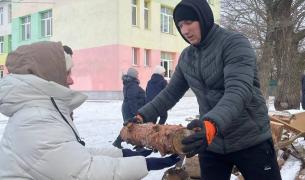Transforming STEM education for the next generation of leaders

For STEM education to truly transform lives and communities, it must go beyond conventional teaching, connecting science, technology, engineering, and math to the challenges students face in the world around them. When students see their STEM learning applied to real-world issues—from environmental sustainability to local economic challenges—it becomes more than just a theoretical pursuit. By embedding STEM education within real-life contexts, we empower students not only as learners but as leaders who are prepared to tackle complex global and local issues and succeed in careers that demand both creativity and resilience.
Connecting STEM learning to real-world challenges helps grow students as leaders
Transformative STEM learning actively engages students with real-world challenges, particularly those they encounter in their local communities. When they apply STEM concepts to address problems they are familiar with, students recognize the relevance of their learning, which enhances their understanding and helps them build the knowledge and skills necessary to become effective problem solvers. The World Bank highlights that skills linked to applied learning—particularly STEM-based problem-solving—enhance students' preparedness to tackle both local and global challenges.
Across the Teach For All network, STEM educators are driving a powerful movement, connecting classroom learning to real-world applications. Through hands-on initiatives, they’re making STEM relevant and impactful, empowering students to apply knowledge to their communities and beyond. One inspiring example comes from Mary Ameh, a Teach For Nigeria STEM educator who saw a pressing need in her school community in Oke Yeke, Abeokuta South, where many students were arriving every morning without breakfast, limiting their concentration and engagement. In response, Mary and her colleagues launched the STEM Garden initiative, creating a sustainable food source on school grounds and extending support to families with seeds and hands-on guidance to cultivate their own food at home. “In our community, we want to nurture young minds and create a future where no child learns on an empty stomach,” Mary shares. Mary’s work has transformed STEM education into a powerful community-centered solution and has inspired many educators experiencing similar challenges to adapt and replicate the initiative within their own contexts.
Connecting STEM Learning to Careers: Preparing Students for Success
The Future Jobs report highlights a critical diversity gap in the STEM field, with underrepresented groups—such as women, underserved communities, and rural populations—having limited access to STEM pathways. Expanding inclusivity in the sector is vital for enhancing individual opportunities and for driving innovation, economic growth, and resilience by tapping into diverse talents and perspectives. Therefore, building an inclusive STEM ecosystem is essential to ensure that everyone can participate and thrive, as well as to create prosperous economies.
Recognizing this need for greater inclusivity in STEM, Syful Akash, a STEM educator and Teach For Bangladesh fellow, committed himself to breaking down barriers to STEM education. Teaching in Dhaka, where many families face economic hardship, Syful observed that his students often felt constrained by societal expectations, which led them to see limited futures and lowered their focus, especially in subjects like math and science. Determined to broaden their horizons, Syful launched Altlearn: The Missing Pieces—an initiative aimed at building student agency through STEM education and inspiring them to set bold goals, and pursue them with determination. Together with his students, Syful developed career-focused STEM lessons and activities that integrated practical skills for future readiness. “The transformation was undeniable,” Syful reflects. “As students built microscopes, explored new technologies, and mapped out career paths, they began to see themselves as future scientists, engineers, and entrepreneurs. These hands-on experiences gave them the confidence to think bigger, dream brighter, and believe in a future they could shape with their own hands.”
Transformative STEM education is not just about teaching concepts; it is about connecting students to their communities and the world at large, to tackle real challenges, while also preparing them for future careers. Educators like Mary Ameh and Syful Akash are demonstrating how STEM education can build resilient, community-focused leaders ready to shape the future. Their initiatives are just a few among many that showcase how educators empower students with the skills and confidence to lead and impact the world they will inherit.


